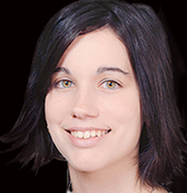
A platform that encourages healthy conversation, spiritual support, growth and fellowship

NOLACatholic Parenting Podcast
A natural progression of our weekly column in the Clarion Herald and blog

The best in Catholic news and inspiration - wherever you are!
How can a child’s innocence turn into violence?
-

By Dr. Heather Bozant-Witcher
Clarion Herald
Over the summer, I met with my editorial team for our university’s literary and arts magazine to decide on our theme: transformation.The students were determined to publish an issue that encapsulated not only the transformation of our magazine in our new role under my advisership and a turn toward the digital, but the transformation of our college campus in response to a global pandemic, and, of course, the transformation of our nation in an election year.
Transformation was all around us.
Reviewing the submissions, I was surprised at the abundance of creative work – from poems and short stories, to plays, essays, photography, sketches and other artistic genres. Our magazine had provided an outlet, a creative way for students to spark conversations and use the arts as a means of expression, a way of coping with the transformations in their own lives.
The students hadn’t let us down. In art, they found a means of expression. We had provided an outlet for ideas surrounding racism, violence and uncertainty. They used their creativity to express concern, to provide hope, to both reflect on a year that was transformative while also looking forward to the changes and opportunities that lie ahead.
In all honesty, in the aftermath of the assault on our Capitol, this was the reminder that I needed.
Regardless of political parties and whether we stand on the right or the left or somewhere in the middle, we should all agree that this assault on what is one of the largest symbols of our democracy was heinous. For yet another time in my life, I couldn’t help but be cognizant of the fact that I was watching history happen – that this would be an event registered in history textbooks, another event that my children would learn about and discuss in their classrooms.
My husband came running downstairs to where my sons and I were building Play-doh sculptures and smushing them between our hands to tell me that the Capitol had been attacked. There were no words. I could only look at the 17-month-olds in front me and wonder, not for the first time, how is it possible that this is the world they’ll grow up in?
Later, as we went for a stroller ride in our neighborhood, I remember listening to them babble – making car noises as the cars passed by, panting and saying “dog” when we heard the dogs bark, screaming with delight when they saw a ball in someone’s yard.
How is it possible that we move from this sense of innocence and delight into a world of violence and divisiveness, from constantly learning and appreciating the world around us to being close-minded and unwilling to dialogue, to learn from differences?
This was surely why Jesus advised that we must be as children to enter into his kingdom.
I don’t have the answers. But somewhere, somehow, our nation has undergone its own transformation. And for the sake of the future generation, I hope that – like the students at my university – we, too, can begin conversations surrounding the issues that divide us as a means of healing from the violence and chaos that reigned in the assault on our Capitol.
Transformation is painful, but it can also be quite beautiful – just look at the butterfly.




